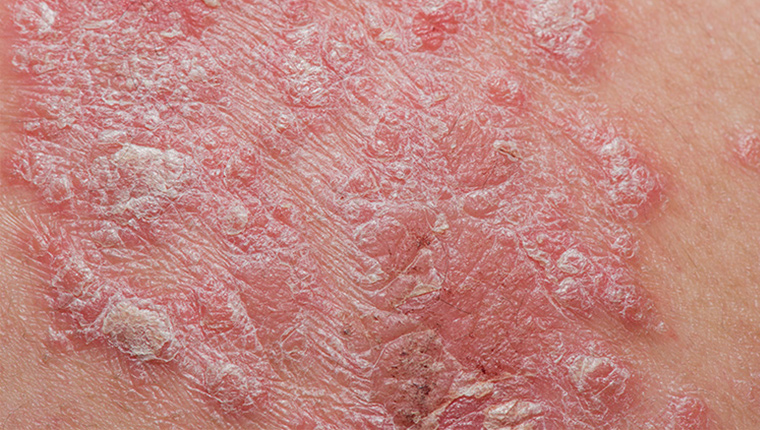Dermatology

Psoriasis
Psoriasis is a chronic, non-transmissible autoimmune disease that affects the skin and joints. It usually causes redness, scaly patches that appear on the skin. These scaly patches, caused by psoriasis, are called psoriatic plaques (areas with inflammation due to excess skin production). Skin quickly accumulates at these sites that become silver-white. More commonly they appear in the elbows and knees but can affect every part of the body, including the scalp and genitalia.
Symptoms
Psoriasis affects about 1-3% of the world’s population. Psoriasis is not contagious and affects men as often as women. It can start at any age, although the usual age of onset is between 20-35 years. It is due to genetic, immunological, environmental and psychological factors. There are several types of psoriasis that cause itching in 60-70% of cases. Other risk factors for psoriasis include smoking, sun exposure, change of season,, some medications, mainly antihypertensive drugs, as well as stress and alcohol addiction.
Treatment
The diagnosis of psoriasis should be made by a dermatologist after performing a clinical examination and taking a short medical history to be accurate and to avoid confusion with other skin diseases such as eczema and scabies. You need to understand that psoriasis is not curable. Current treatments mainly aim at reducing the symptoms and improving the appearance of your skin for a long time. Treatment options vary, depending on the type and severity of psoriasis. These may be topical steroid treatments, ultraviolet radiation therapy, systemic injections or a combination therapy of the above.
Α. 30% of people with psoriasis will develop psoriatic arthritis. This is a disease that causes pain and edema in the joints. Other illnesses and health problems that are most likely to occur in people with psoriasis include heart disease and heart attacks, diabetes, hypertension, arteriosclerosis, Crohn’s disease, cancer, metabolic syndrome, obesity, liver disease.
Α. It has been found that some foods that fight inflammation can help reduce psoriasis flares. Such foods are fruits and vegetables, foods containing omega-3 fatty acids (fish, fish oil supplements, nuts), whole grain cereals, fat-free protein, and spices such as ginger and curry. Conversely, red meat, sugar, processed foods and alcohol can aggravate the symptoms of the disease. Alcohol, in particular, should be avoided as it can exacerbate the side effects of medications administered to the patient to treat psoriasis.
Α. Sometimes patients experience low self-esteem because their psoriasis make them feel repulsive. Psoriasis is often misunderstood by the world, which can adversely impact the patient’s social life. Your allies in this battle are immediate treatment combined with a strong immune system (exercise and a healthy diet).